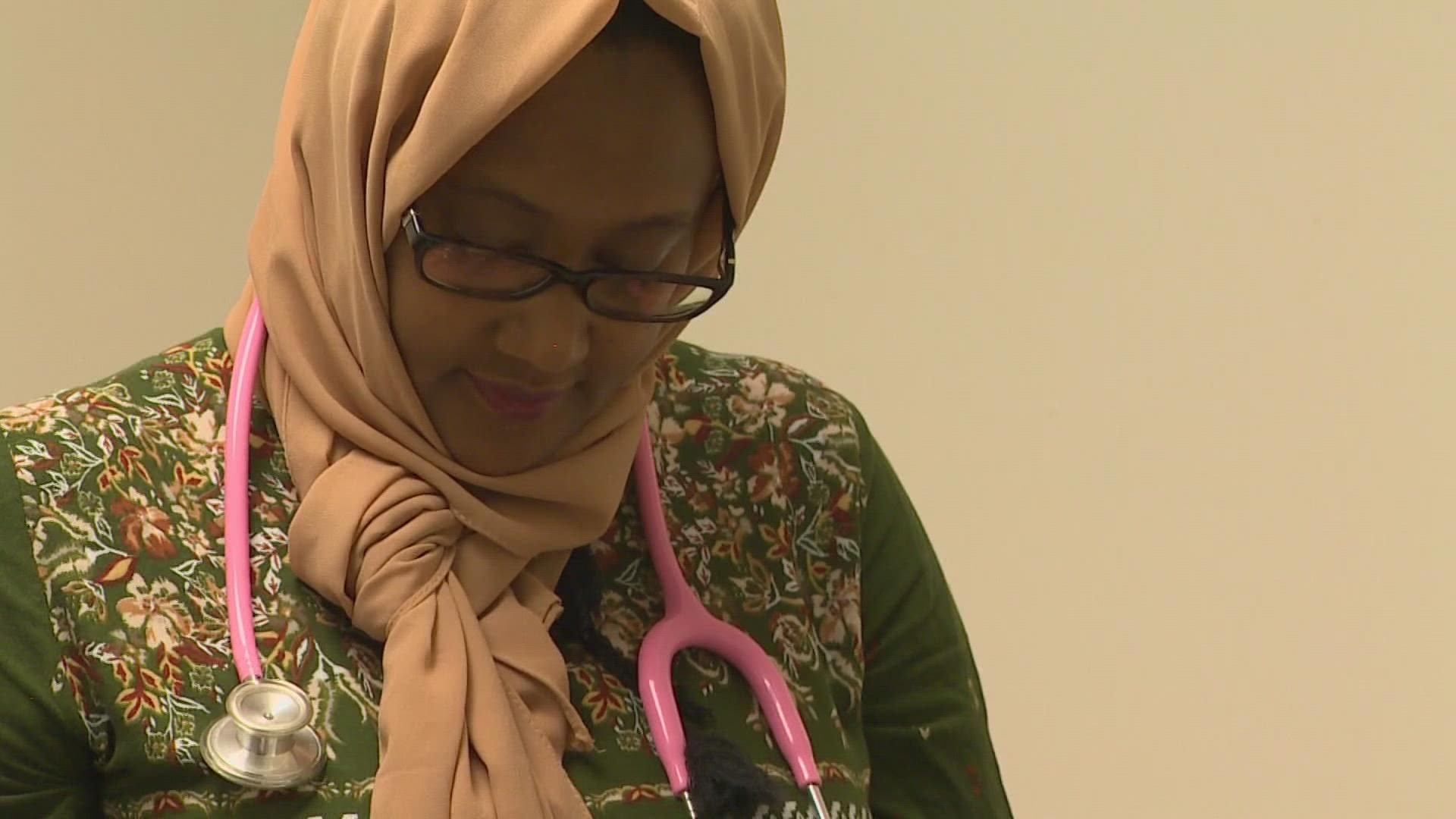BURIEN, Wash. — Faisa Farole runs her midwifery business out of a small office in Burien.
She got her start in the childbirth industry working to help Somali refugee families navigate the healthcare system in the United States.
She quickly noticed a startling statistic.
“Women were having higher cesarean rates in the Somali community,” Farole said.
After becoming a certified midwife, she decided to primarily serve Black families and she found the rates of cesarean sections were just the tip of the iceberg.
“There’s been so many mild mistreatments towards Black women, and of course, with the studies that have come out the past few years showing just how dire that was and that this is not just something Black women were thinking, it wasn’t just in their minds, it’s actuality,” Farole told KING 5.
According to the Centers for Disease Control, Black women are nearly three times more likely to die from childbirth than white women.
The issue became top of mind in Washington D.C. as this year the White House declared April 11 - 17 Black Maternal Health Week to call attention to the disparities.
“We're watching, witnessing how much representation matters,” said Jemma Nonog, President of the American College of Nurse Midwives, Washington State.
Nonog focuses on diversity and equity in the medical field.
“Black birthing people, Black women are experiencing less agency, less autonomy, less consent, true informed consent, of their full options of care when they enter into the medical system,” Nonog said.
Others working in the Black birthing field also see this trend.
“I just witnessed families over and over again being really railroaded in the medical system and not getting all the options offered to them,” said Rokea Jones.
Jones is a doula and the Director of Community Based Research for the Tubman Center For Health and Freedom, a new health-focused community organization working to offer care to marginalized communities.
“The midwifery care model is really in its nature a community-based model,” Jones said.
Nonog and Jones said the issue stems from a lack of diversity in the medical field.
Data from the Association of American Medical Colleges states in 2018 only 5% of physicians in the U.S. identified as Black or African American.
“Research is showing that outcomes are improved for BIPOC people when they have midwifery care,” Nonog said.
But a lack of diversity is also a problem in midwifery.
In 2020 6.85% of midwives in the U.S. identified as Black or African American while 85.5% were white, for other BIPOC groups the rates are even lower, according to the American Midwifery Certification Board.
“There are just some things culturally about the ways that we express ourselves, the foods we like to eat, or things we understand culturally that we use for our healing and our wellness," Jones said. "It's beyond beneficial to have a provider who can show up in that space and to be able to help us along in that personal journey."
Farole is fundraising to create a safe place for pregnant people in BIPOC communities.
She is working to open the first Black, woman-owned birth center in the state of Washington.
This, Farole told KING 5, will give BIPOC families more out-of-hospital options to give birth in the space, supported by, run by, and organized by people from their own communities.
“I think a birth center would be an amazing addition for the communities that I serve to have and not just the families, but also for aspiring Black midwives to come and learn from,” Farole said.
It’s a step in the direction of health equity, Nonog and Jones believe.
“It’s about dang time, right?" Nonog said. "That we support, wrap around her as much as we can to make sure this happens because this is what we have been looking for."
“It's going to take more, right?" Jones said. "We need to really rally behind Faisa. Faisa’s birth center will be one step as we're moving forward towards health justice, and really taking care of people."
“It’s about making sure that a group of people that are hurt are getting healed, you know what I mean?" Farole said. "So, that’s what this is for me, it’s about equity."
One of the big models for Farole’s birth center is training more BIPOC midwives to further diversify the field.
Farole has a webpage set up to help fundraise and share information about her goals and ideas for the birth center.

